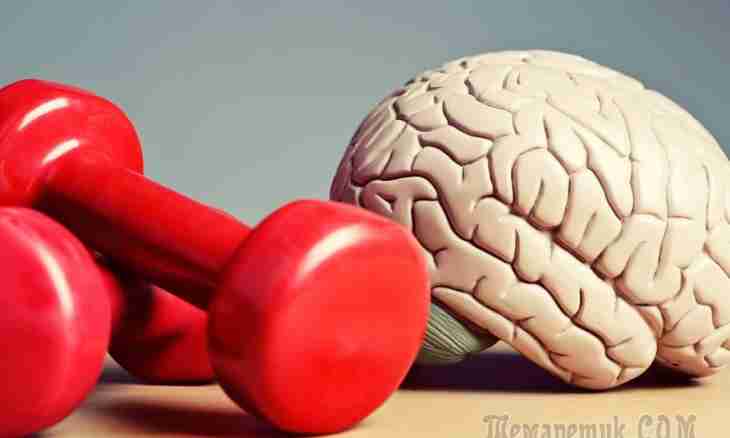In psychological science activity is called process of active interaction of the personality with the world around. Already in the early childhood of people one of them – informative joins in numerous types of activity, and.
Content of cognitive activity is acquisition of knowledge of objects and the phenomena of the world around. In the course of this activity of people studies interaction with the world around, learning those regularities on which it exists. The basis of cognitive activity is formed by cognitive (informative) mental processes – feeling, perception, memory, thinking, imagination.
Feeling and perception
The feeling is a mental reflection of separate properties of objects and phenomena. This simplest mental phenomenon representing processing by nervous system of those irritants which proceed from the outside world or from the internal environment of an organism. Depending on irritants and sense organs (analyzers) for which they are adequate feelings are subdivided into visual, acoustical, tactile, olfactory, flavoring, temperature, kinaesthetic (connected with the movement).
Perception – more difficult process. This complete reflection of images of the world around in all variety of their properties therefore the division of perception on visual, acoustical, etc. is rather conditional. In perception there is a complex of several feelings, and it is not simple result of impact of irritants on sense organs, and active process of processing of information.
Memory and thinking
Feelings and images of perception remain memory which represents process of preservation and reproduction of information. According to the psychologist S.L. Rubenstein, without memory "our past would be dead for the future". Thanks to memory the acquisition of knowledge and life experience is possible. If the feeling and perception can be carried to sensory perception, then thinking corresponds to the level of knowledge rational. During thinking not only concrete objects and the phenomena are reflected mentality, but also their general properties open, connection between them is established, new knowledge which cannot be received in the form of "ready" concrete images is born. The main operations of thinking – the analysis (the practical or mental partition of a subject on components) and synthesis (construction whole), generalization and its contrast – a specification, abstraction. Thinking exists in the form of logical operations – judgments, conclusions, definitions. The special type of thinking peculiar only to the person – abstract thinking. Its "material" are concepts – generalizations of high level which in principle cannot be presented in the form of concrete objects. For example, it is possible to present a cat, a dog, a snail – but not "an animal in general". Such form of thinking is closely connected with the speech, any generalized concept has to be presented in the word form.
Imagination and attention
Imagination – the special process which is intermediate between perception, memory and thinking. It allows to reproduce any images as it does memory, but these images can have a little general with real-life objects and the phenomena. Nevertheless, thinking manipulates them just as the kept images of real objects. Distinguish the imagination recreating and creative. For example, when the conductor, reading the score, imagines sounding of the piece of music - it is the recreating imagination and when the composer internal hearing "hears" the new work - it is creative imagination. Among psychologists there is no consensus concerning the attention nature. Some consider it independent mental process, others – property of various cognitive processes (perceptions, thinking) to concentrate on a certain object. It represents conscious or unconscious selection of one information and ignoring another. Division of cognitive activity into processes should be considered conditional. All cognitive processes are not located in the chronological sequence, and exist in a complex.

